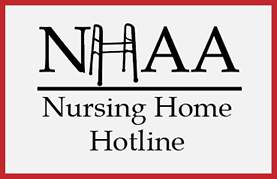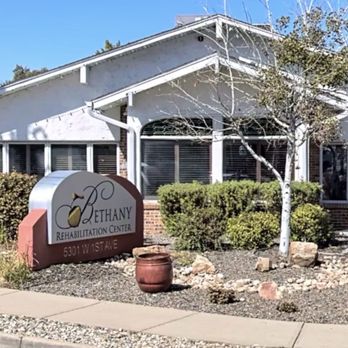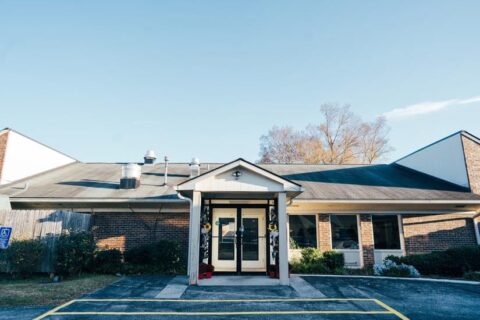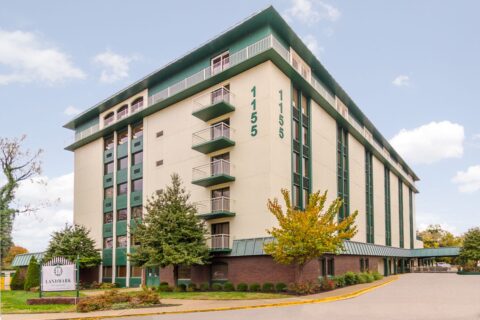Your Rights and Regulations
Federal and state nursing home regulations govern the rights of nursing home. These regulations, designed to protect patients from abuse and neglect, address privacy, security and participation in care concerns. Among these regulations are the laws created by the Nursing Home Reform Act.
Resident Rights
Congress passed the Nursing Home Reform Act in 1987 following a 1986 study finding that nursing home residents were frequently being abused and neglected. The purpose of the Nursing Home Reform Act is to make certain that all federally-funded nursing homes provide quality care and services aimed at maintaining the physical, mental and social well-being of each resident. This act makes the care of nursing home residents a matter of federal law and ensures that any violation of the standards set forth in the guidelines is considered a federal crime. The act also offers consequences and solutions to problems or violations, requires nursing homes to provide specific services, and establishes a residents’ Bill of Rights.

State Protection
Nursing homes are minimally required to comply with federal nursing home regulations who receive Medicare or Medicaid funds. However, some states, have adopted more strict laws. Check with your local health department for specific regulations in your state. Information about each state’s laws can also be found online by clicking the link underlined here.
Federal Protection
Congress responded to reports of widespread neglect and abuse in nursing homes, it enacted legislation in 1987 requiring nursing homes participating in Medicare and Medicaid to comply with certain quality of care rules and regulations. Known as the Nursing Home Reform Act, this law says that nursing homes “must provide services and activities to attain or maintain the highest practicable physical, mental, and psychosocial well-being of each resident in accordance with a written plan of care.” To participate in Medicare and Medicaid, nursing homes must comply with the federal requirements for long term care facilities.
Federal Regulations:
Title 42 – Part 483 – Subpart B – Requirements for Long Term Care Facilities
42 CFR §483.15
- Promote each resident’s quality of life.
- Maintain dignity and respect of each resident.
42 CFR §483.20
- Conduct initially a comprehensive and accurate assessment of each resident’s functional capacity.
- Develop a comprehensive care plan for each resident.
42 CFR §483.25
- Prevent the deterioration of a resident’s ability to bathe, dress, groom, transfer and ambulate, toilet, eat, and to communicate.
- Provide, if a resident is unable to carry out activities of daily living, the necessary services to maintain good nutrition, grooming, and personal oral hygiene.
- Ensure that residents receive proper treatment and assistive devices to maintain vision and hearing abilities.
- Ensure that residents do not develop pressure sores and, if a resident has pressure sores, provide the necessary treatment and services to promote healing, prevent infection, and prevent new sores from developing.
- Provide appropriate treatment and services to incontinent residents to restore as much normal bladder functioning as possible.
- Ensure that the resident receives adequate supervision and assistive devices to prevent accidents.
- Maintain acceptable parameters of nutritional status.
- Provide each resident with sufficient fluid intake to maintain proper hydration and health.
- Ensure that residents are free of any significant medication errors.
42 CFR §483.30
- “Have sufficient nursing staff.”
42 CFR §483.40
- Ensure that the resident has the right to choose activities, schedules, and health care.
42 CFR §483.60
- Provide pharmaceutical services to meet the needs of each resident.
42 CFR §483.75
- Be administered in a manner that enables it [the nursing home] to use its resources effectively and efficiently.
- Maintain accurate, complete, and easily accessible clinical records on each resident.
Federal Surveys
The Nursing Home Reform Act requires states to conduct unannounced surveys at least once every 15 months; which would include resident interviews. This type of monitoring falls under compliance with the federal standards of nursing homes.
The surveys, by definition, are usually broad examinations of whether residents are being respected and well-treated. The interviews focus on quality of care and life, resident rights and provided services to the residents. If the surveys uncover violations, the government decides how to remedy the violation(s) based on their severity. These unannounced surveys and enforcement helps keep nursing homes accountable and enforces the Nursing Home Reform Act standards.
The following is a list of possible punitive or corrective sanctions approved by the Nursing Home Reform Act to those nursing homes in violation of federal law:
- Civil monetary penalties and fines
- Denial of Medicaid or Medicare funding
- Directed plan of correction
- Government directed staff training
- Government takeover of nursing home
- Increased monitoring by the state government
- Rejection of licenses and other forms of certification
State Surveys
Nursing homes who participate in Medicaid and Medicare are required by federal law to abide by an annual survey and certification process by its state’s health department. Nursing Homes must be in considerable compliance with Medicare and Medicaid requirements, as well as state law requirements.
Latest survey results must be readily available for review according to nursing home regulations. The survey determines whether the quality of care, as intended by the law and regulations and as needed by the resident, is being implemented by the nursing home.
If a nursing home is established to be violating nursing home regulations, federal law enforcement options include fining the nursing home, denying payment for new admissions, revoking Medicaid and Medicare certifications, transferring nursing home residents, and imposing temporary management upon the nursing home.
The survey and certification process creates several expectations of nursing homes, including the following:
- Nursing homes participating in Medicare and Medicaid programs must remain in substantial compliance with the Medicaid/Medicare care requirements
- All deficiencies will be addressed promptly
- Residents will receive the care and services they need to meet their highest practicable level of functioning
If the annual certification survey finds a nursing home is incomplete because it does not meet a requirement of the federal nursing home regulations, the deficiency is recorded in a Survey Report Form. Deficiencies alleged by staff, residents or family members must be confirmed through records, interviews and observations. If staff, resident or family allegations are not confirmed through records, interviews, or observations, the nursing home cannot be alleged as deficient. Once a survey team determines that deficiencies exist, it determines the seriousness of the violations. It looks at whether the deficiency status constitutes immediate jeopardy or actual harm, as well as whether the deficiency is isolated, constitutes a pattern or is widespread in the nursing home.
The Medicare website lists the most recent federal survey results, populations of the nursing homes surveyed and facts about nursing homes’ ownership. This can be a valuable guide when selecting or re-selecting a nursing home for a loved one.
- Civil monetary penalties and fines
- Denial of Medicaid or Medicare funding
- Directed plan of correction
- Government directed staff training
- Government takeover of nursing home
- Increased monitoring by the state government
- Rejection of licenses and other forms of certification






